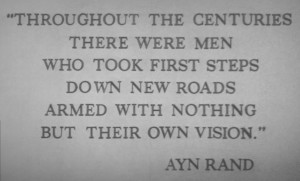Attitudes, Values and Beliefs in texts
Firstly, let’s define the terms ‘attitude’, ‘values’ and ‘beliefs’. Here are their relevant definitions from The Australian Oxford Dictionary:
Attitude
1a. a settled opinion or way of thinking.
b. behavior reflecting this (I don’t like his attitude).
2a. a bodily posture
b. a pose adopted in a painting or a play, especially for dramatic effect (strike an attitude).
Attitude of mind a settled way of thinking
Value
1. the worth, desirability or utility of a thing, or the qualities on which these depend (the value of regular exercise).
2. worth as estimated; valuation (set a high value on my time).
7. (in pl.) one’s principles or standards; one’s judgment of what is valuable or important in life.
Belief
1a. a person’s religion; religious conviction (has no belief).
b. a firm opinion (my belief is that he did it).
c. an acceptance (of a thing, fact, statement, etc.) (belief in the afterlife).
2. (usually foll. by in) trust or confidence.
Each one of us has different beliefs and holds different values, which in turn affect the attitudes we display towards other people and situations. Family, friends, community and the experiences we have experiences contribute to our sense of who we are and how we view the world.
“Values are principles, standards or qualities that an individual or group of people hold in high regard. These values guide the way we live our lives and the decisions we make. A value may be defined as something that we hold dear, those things/qualities which we consider to be of worth.
A ‘value’ is commonly formed by a particular belief that is related to the worth of an idea or type of behaviour… Some dominant values in our society might be [in the following contexts]:
- family—caring for each other, family comes first
- peers—importance of friendship, importance of doing things that peers approve of
- workplace—doing your job properly; approving/disapproving of ‘foreign orders’ (doing home-related activities in work time or using work resources for home related activities)
- educational institutions—the valuing or otherwise of learning; value of self in relation to an ability to learn (this often depends on personal experience of schooling, whether positive or negative)
- significant life events—death of loved ones and the impact on what we value as being important; marriage and the importance and role of marriage and children; separation and divorce and the value change that may be associated with this (valuing of self or otherwise)
- religion—beliefs about ‘right and wrong’ and beliefs in gods
- media—the impact of TV, movies, radio, the Internet and advertising on what is important in our lives, what is valued and not valued
- music—music often reflects what is occurring in society, people’s response to things such as love and relationships which may then influence the development of our values
- technology—the importance of technology or otherwise; the importance of computers and developing computer skills
- culture—a cultural value such as the importance of individuality as opposed to conforming to groups
- major historical events—not wasting anything, saving for times of draught, valuing human life, patriotic values.” Source: NSW TAFE
Curriculum consultant John Watson’s website contains more definitions which will help you decipher your text, such as its definition of ‘attitudes’:
“Attitudes are how values are manifested towards others. Attitudes are our feelings towards certain idea or issues. Authors reveal certain attitudes within their texts whether these texts be fiction or non-fiction, print or non-print. Attitudes are conveyed through the use of specific language which positions you to accept the author’s attitudes…
Attitudes can be revealed in characters’ thoughts, actions, body language, dress etc. (…An attitude is a person’s view… Never label any attitude as simply positive or negative!)
Remember to distinguish between:
- the reader’s attitudes and values;
- the author’s attitudes and values;
- the attitudes and values revealed within the text (which may be different to the author’s values and attitudes, as in satire for example).”
Here are some suggested questions from that site to help you analyse the values, attitudes and beliefs in your text:
“1. Consider the techniques employed by the author to convey his/her values and attitudes. Comment upon your response to these values and attitudes.
2. What values and attitudes are being presented in this passage?
3. Discuss how this text represents gender / women / men / females / males / boys / girls/ gender, the experience of youth, social class, the aged, the family.
4. Consider your reactions to or reading of one passage. You might consider your attitudes and values and/or other reading experiences.
5. Discuss the ways in which one passage employs narrative conventions and style of language to influence the readers’ response.
6. Comment on the issues and values in this passage / these passages.
7. What attitudes to the theme /issues raised in this article / passage does the writer encourage in you? Analyse the techniques used by the author to shape your response.
8. How does the writer use setting / character / point of view / choice of language / narrative structure / dialogue to position the reader in relation to the issue raised in this article/ passage? (Select the most relevant three for the passage you are analysing.)
9. Consider the comment the author makes on human values and social structures. Make detailed references to support your answer.
10. What attitude to ……….. does the writer encourage in you, the reader? Analyse the techniques that have been used in achieving this response.
11. How does the use of setting, choice of language and selection of detail position the reader to respond to certain minority groups?
12. How has the writer challenged / endorsed your attitudes to the subject of this article / passage?”
Source websites:
NSW. Department of Education and Training 2009, Personal values, belief and attitudes, Accessed 28 October 2014, https://sielearning.tafensw.edu.au/MCS/CHCAOD402A/chcaod402a_csw/knowledge/values/values.htm
Watson J 2014, Year 12 English Expository texts/Comprehension Comment Terminology, Accessed 28 October 2014, http://johnwatsonsite.com/MyClassNotes/Topics/NonFiction/12EngExposVocab%20.htm
Teacher Notes:




